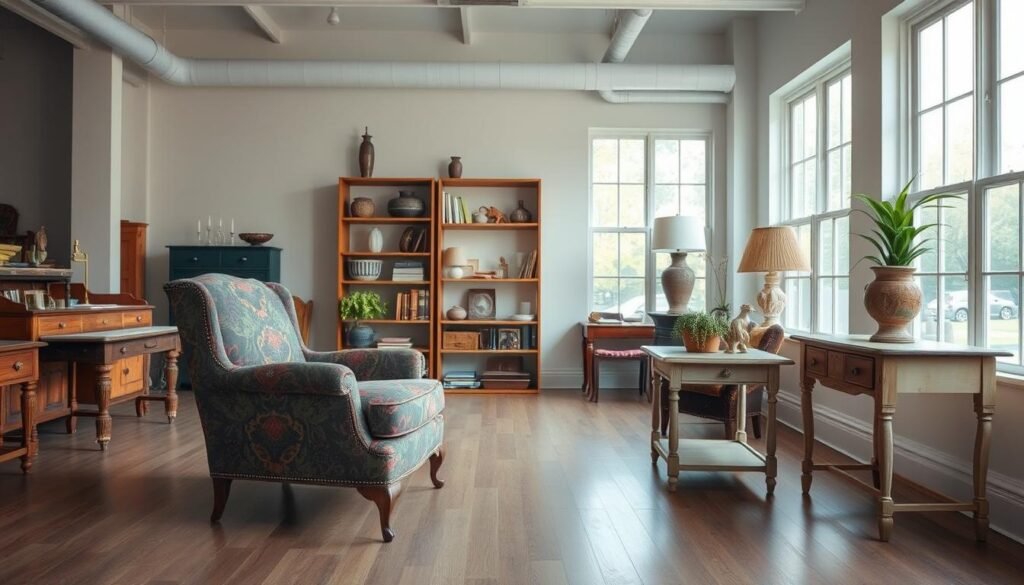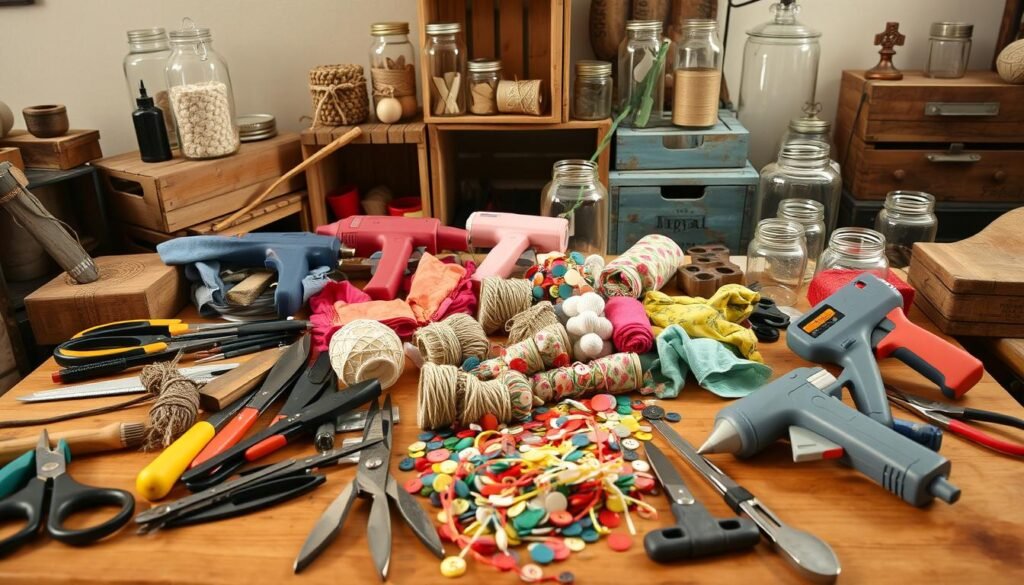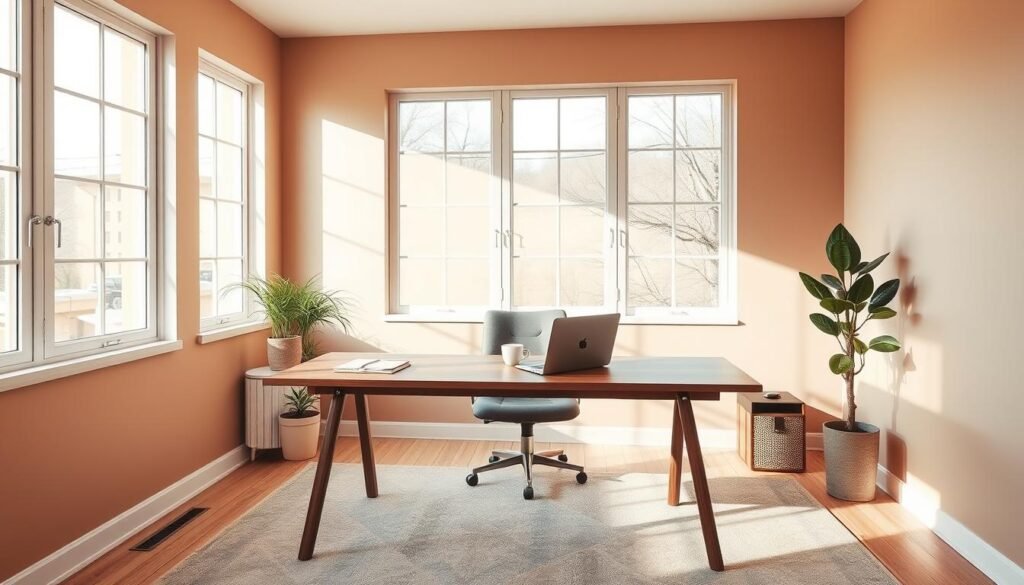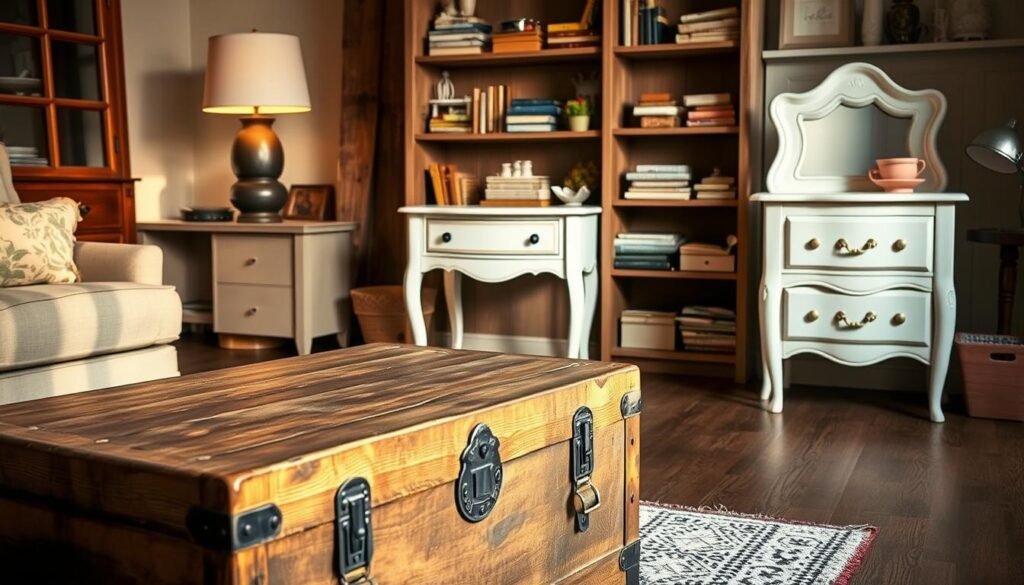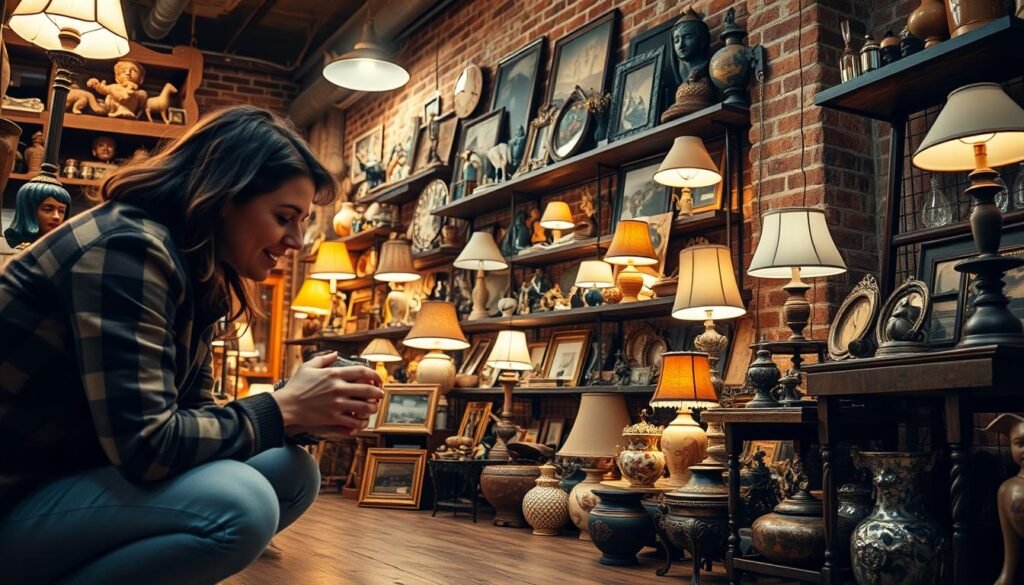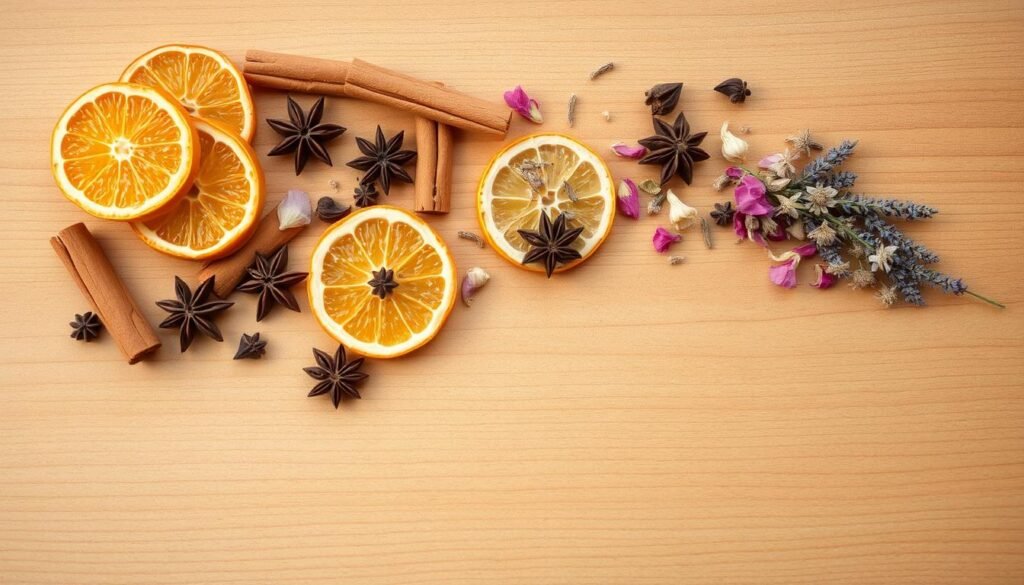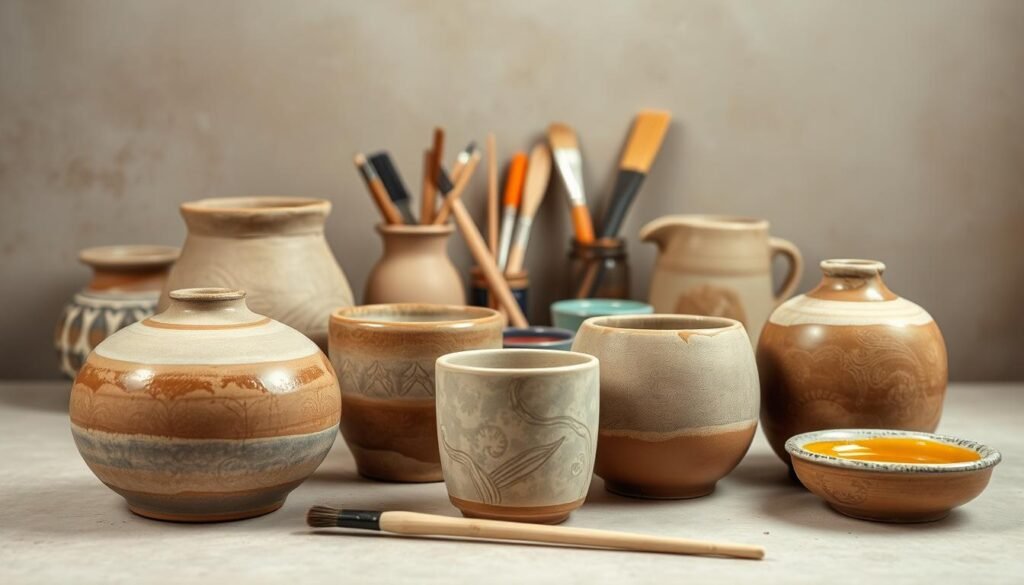What if your next favorite home accent cost less than a latte? Imagine turning dated finds into showstopping pieces that scream your personality. That’s the magic of creative upcycling – transforming overlooked treasures into functional art.
This approach lets you craft spaces bursting with stories. Unlike mass-produced items, revived secondhand goods add layers of character you can’t buy new. They become conversation starters that reveal your eye for hidden potential.
More homeowners are embracing intentional arrangements that spark joy (without the clutter chaos). It’s about curating meaningful displays – think vintage frames housing modern art or retro lamps casting cozy glows. These touches create what designers call “dopamine decor” – spaces that literally make you smile.
Beyond aesthetics, there’s a planet-friendly perk. Choosing pre-loved items reduces landfill waste dramatically. One repurposed dresser saves 300 pounds of CO2 emissions compared to buying new. Your creativity becomes an eco-superpower.
Ready to unlock this satisfying craft? We’ll show you how to spot diamond-in-the-rough pieces and give them luxe makeovers. From chalk-paint techniques to hardware swaps, you’ll learn trade secrets that rival high-end designers. All while keeping your budget – and carbon footprint – refreshingly small.
Introduction to Thrift Flip Decor and Upcycling
Ever stumbled upon a dusty treasure that whispered “fix me”? That’s the thrill of creative revival – turning forgotten items into showpieces that reflect your story. This movement isn’t just about saving money (though your wallet will thank you). It’s about rewriting an object’s purpose with fresh vision.
Defining the Thrift Flip Concept
Think of it as extreme makeover: furniture edition. You’ll take worn pieces – maybe a chipped dresser or outdated lamp – and reimagine them through paint, new hardware, or clever adaptations. One influencer transformed an old ladder into a bookshelf that now stars in her Instagram feed.
The magic lies in seeing beyond surface flaws. That scratched coffee table? Sand it down, stain it walnut, and suddenly it’s a modern centerpiece. Your living room becomes a gallery of your ingenuity.
Benefits of Using Second-Hand Finds
Beyond the obvious budget perks (hello, 90% off retail prices!), repurposed finds offer triple rewards:
- Planet-friendly impact: Each revived piece keeps 200+ pounds of materials from landfills
- Signature style: Mix eras and textures to create unique combinations big-box stores can’t replicate
- Quality craftsmanship: Vintage items often feature solid wood construction that outlasts modern particle board
As designer Marie Kondo notes: “The best home spaces spark joy through intentionality.” Your upcycled creations become physical reminders of your creativity – and proof that great design doesn’t require breaking the bank.
Materials, Tools and Techniques for Successful Flips
Your toolkit holds the key to unlocking hidden potential in forgotten furnishings. Whether reviving a mid-century side table or modernizing retro shelves, the right equipment turns ambitious ideas into Instagram-worthy realities. Let’s explore what separates amateur attempts from pro-level transformations.
Essential DIY Tools and Supplies
Start with these game-changers in your workspace:
- Surface prep warriors: An orbital sander banishes scratches, while Ardex Concrete Repair Mix fills gaps like magic spackle
- Shape-shifters: Jigsaws modify silhouettes – think tapered legs on bulky dressers
- Bonding agents: Wood glue outperforms nails for invisible joins (your secret for seamless edges)
Textured spray paints add depth to flat surfaces – try matte finishes for modern farmhouse vibes. Metallic leaf sheets transform drawer pulls into jewelry for furniture. As one designer quips: “A power drill and Krylon gold can out-design a $5,000 budget.”
Choosing Quality Thrifted Pieces
Hunt for these green flags when sourcing:
- Solid bones: Knock-test wood surfaces – hollow sounds signal particle board
- Functional potential: Sticky drawers often need simple waxing, not major surgery
- Clean lines: Simple shapes accept new styles easier than ornate carvings
Practice on $20 finds before tackling heirloom-quality items. That laminate desk? Perfect for testing chalk paint techniques. Master the art of seeing what could be – not just what’s visible under thrift store fluorescents.
Thrift Flip Decor: Transform Your Home with Second-Hand Finds
Your space becomes a masterpiece when you start with a clear vision. Like a painter choosing their palette, intentional design begins by mapping out your room’s potential. Elizabeth Rooney – known for her viral kitchen makeover – compares this phase to detective work: “Study inspiration images until patterns emerge in your preferences.”
Planning Your Design and Concept
Begin by auditing your current setup. Which corners feel incomplete? What color stories could unite your home decor? Create a mood board using free apps like Canva to visualize how vintage finds might elevate your existing layout.
Consider this comparison table when evaluating potential projects:
| Inspiration Source | Key Element | Modification Scope |
|---|---|---|
| Pinterst boards | Color relationships | Surface treatments |
| Architectural Digest | Texture mixing | Structural changes |
| Thrift store aisles | Unique shapes | Functional repurposing |
Train yourself to see past chipped paint. That mid-century chair with torn upholstery? Its curved arms could become your living room’s focal point with new fabric. Rooney suggests: “Photograph items from multiple angles – sometimes potential reveals itself in unexpected shadows.”
Limit impulse buys by carrying swatches of your dominant hues. Does that amber vase complement your sage green walls? Could those brass handles update your bathroom vanity? Strategic planning turns random finds into purposeful decorate home solutions that tell your story.
Creative DIY Projects and Real-Life Case Studies
Your next showstopping piece might be hiding under a layer of dust. Let’s explore how everyday items become extraordinary through strategic upgrades – complete with actionable techniques and real-world success stories.
Furniture Makeovers and Accent Pieces
That battered dresser? Prime material for an entryway hero. One creator added hairpin legs and marble-contact paper to create a coffee table that rivals $800 retail options. Try these pro-approved methods:
- Revive wood surfaces with milk paint for vintage charm
- Swap dated hardware for modern pulls (10-minute upgrade)
- Line drawer interiors with remnant wallpaper for hidden delight
| Project Type | Materials Used | Skill Level |
|---|---|---|
| Chair Reupholstery | Fabric scraps, staple gun | Intermediate |
| Vase Makeover | Textured spray, gold leaf | Beginner |
| Cabinet Conversion | Wood filler, matte enamel | Advanced |
Innovative Upcycling Ideas from Secondhand Stores
Think beyond furniture aisles. Those vases collecting dust? Fill them with layered sand and succulents for instant boho flair. Elizabeth Rooney’s genius hack: “I turned a chessboard into a key organizer using cup hooks – it’s functional art that guests always notice.”
Inspiring Before and After Transformations
Witness the power of imagination through these jaw-dropper projects:
- A $14 serving tray became a luxe display piece with wood bead feet
- Mismatched jars transformed into cohesive candleholders using one coat paint color
- Vintage teacups now hold air plants, suspended by macramé hangers
For endless inspiration, explore our curated list of 101 transformative upcycling concepts. Remember – every old piece holds potential. Your vision just needs the right tools to shine through.
Mastering the Thrift Store Hunt: Tips and Tricks
Ever felt overwhelmed by crowded aisles and mismatched items? The secret lies in treating secondhand shops like curated galleries – each visit unveils new possibilities waiting for your personal touch. Elizabeth Rooney, known for her viral makeovers, shares: “The best discoveries happen when you’re hunting without a shopping list.”
Finding Hidden Gems in Secondhand Shops
Rooney advises: “Treat these excursions like coffee runs – quick, frequent, and energizing.” Stores restock daily, so weekly visits increase your odds dramatically. Check behind shelf items and bottom racks – pristine mid-century bowls often hide behind chipped mugs.
Bring a mini toolkit: a tape measure, swatches, and your phone’s camera. Use Google Lens to identify unknown brands – that “ugly” vase might be a discontinued designer piece. Test drawers and hinges thoroughly – minor fixes shouldn’t scare you away from solid wood construction.
Budgeting and Strategic Thrifting
Set monthly spending limits but allocate 20% for spontaneous finds. Many locations offer 50%-off color tags on specific days – call ahead to learn discount schedules. Senior days and donation coupons stretch budgets further.
Rooney’s golden rule? “Buy only what you can transform within two weeks.” This prevents project pile-up while letting creativity flow. Track prices using notes apps – you’ll quickly recognize fair rates versus overpriced items.
Remember – building a signature space takes multiple visits. One influencer found her statement chair on the eighth try. As you refine your eye, ordinary stops become treasure hunts where every corner holds potential.
Conclusion
You’ve now got the blueprint for turning overlooked items into showstopping pieces. This creative process lets you decorate home environments that whisper your personality in every corner – without draining your wallet or the planet.
Through strategic upgrades, even basic finds become conversation starters. Remember that scratched side table? With fresh stain and modern pulls, it could anchor your living room. The key lies in seeing potential where others see flaws.
Need inspiration? Our guide to decorating with pre-loved treasures offers endless ideas. You’ll learn to mix textures and eras like a pro, creating depth that mass-produced items can’t match.
Your home deserves pieces with stories. Each revived object becomes a testament to your vision – proof that great style thrives on imagination, not unlimited funds. Ready to start? Grab your paintbrush and let the thrift aisles spark your next masterpiece.

